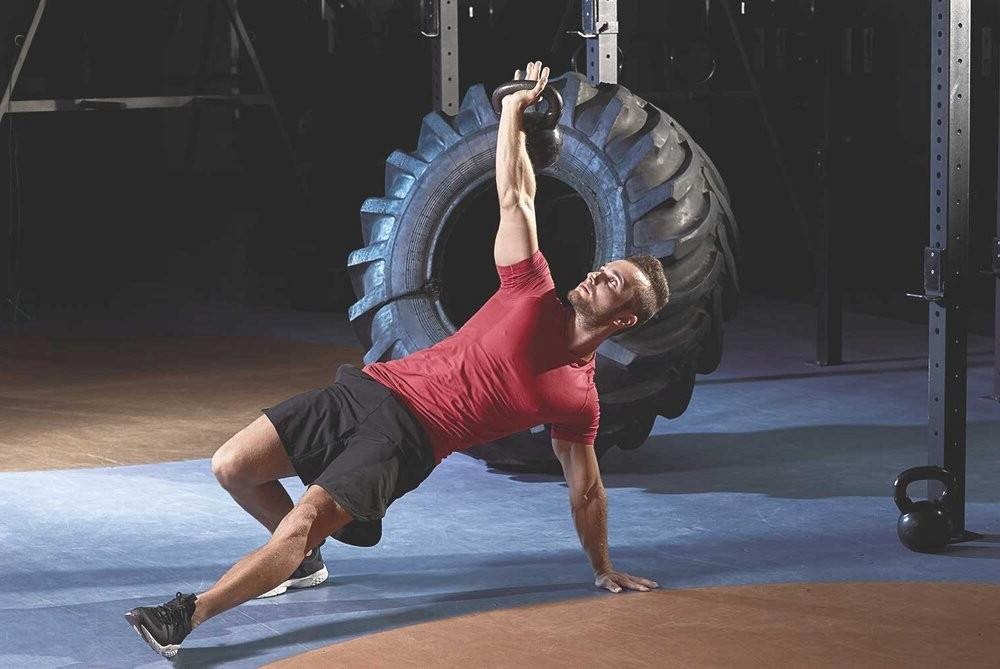Last Updated on: 18th December 2024, 12:30 pm
Functional fitness training focuses on exercises that mimic real-life movements, engaging multiple muscle groups at once. This approach enhances strength, agility, and reduces injury risk.
- Roots in Rehabilitation: Developed from recovery exercises that simulate daily activities.
- Shift from Aesthetics to Practicality: Focuses on practical benefits rather than appearance.
- Efficiency and Effectiveness: Provides versatile workouts suitable for modern lifestyles.
Core Principles of Functional Fitness

Emphasis on Natural, Everyday Movements
Incorporate exercises that replicate daily actions like squatting and lifting to improve functional performance.
Focus on Building Strength, Stability, and Mobility
Develop a balanced mix of strength, stability, and mobility by challenging the body in different motion planes.
The Holistic Approach to Fitness and Wellness
Functional fitness enhances physical and mental well-being by focusing on essential movements for daily life.
Physical Benefits of Functional Fitness Training

- Muscular Strength and Endurance: Improves ability to perform daily tasks efficiently.
- Joint Health and Flexibility: Enhances joint function and reduces injury risk through varied movements.
- Cardiovascular System Boost: Strengthens heart health and increases stamina.
- Weight Management: Engages multiple muscles for effective calorie burning and muscle building.
Mental and Emotional Benefits of Functional Fitness Training

Functional fitness training provides mental and emotional benefits:
- Reduces stress through endorphin release.
- Boosts self-esteem by achieving fitness goals.
- Enhances cognitive functions through focus and coordination.
This training supports mental and emotional health, contributing to a balanced lifestyle.
Functional Fitness for Injury Prevention and Rehabilitation

Functional fitness is key in preventing injuries and aiding rehabilitation by strengthening the body through everyday movements.
It creates a balance of strength, flexibility, and stability, reducing injury risks during daily and strenuous activities. This training prepares the body for real-life scenarios, acting as a protective measure.
In rehabilitation, functional fitness bridges clinical recovery and daily life, accelerating healing and empowering individuals in their recovery journey.
Proper technique and form are crucial to effective training, ensuring safety and maximizing benefits.
Incorporating functional fitness into routines offers a proactive approach to injury prevention and a strong rehabilitation framework, enhancing resilience against physical challenges.
Functional Fitness Across Different Age Groups

Adaptability for Seniors
- Improves balance and prevents falls.
- Focuses on stability and coordination.
- Strengthens muscles and joints, enhancing confidence.
Benefits for Middle-Aged Adults
- Addresses sedentary lifestyle issues.
- Maintains health and vitality.
- Supports well-being through midlife.
Importance for Younger Individuals
- Establishes a foundation for lifelong fitness.
- Encourages healthy habits early on.
- Builds strength and mobility for future stages.
Functional fitness benefits all ages, providing tools for physical well-being across generations. It enhances stability for seniors, maintains health for middle-aged adults, and builds a fitness foundation for the young.
Getting Started with Functional Fitness

Tips for Beginners
- Begin with basic movements like squats, lunges, and push-ups.
- Prioritize form and technique.
- Gradually increase workout complexity and intensity.
- Listen to your body to prevent overexertion.
- Maintain consistency.
Finding the Right Coach or Program
- Select certified professionals with functional fitness expertise.
- Choose a coach who tailors programs to your fitness level and goals.
- Opt for reputable online programs offering form and technique guidance.
Incorporating Functional Fitness into Daily Life
- Apply functional movements beyond the gym.
- Integrate exercises into daily tasks.
- Enhance practical benefits, making everyday tasks easier.
- Reduce injury risk.
Embracing functional fitness leads to a more active and capable life. With the right approach and guidance, anyone can benefit from this training philosophy. Start small, stay consistent, and observe how functional fitness transforms your body and daily life.
Summing Up
Functional fitness enhances daily life by building resilience and improving well-being. It empowers individuals to face challenges with strength and grace. Begin your functional fitness journey to achieve a more capable and vibrant life.

